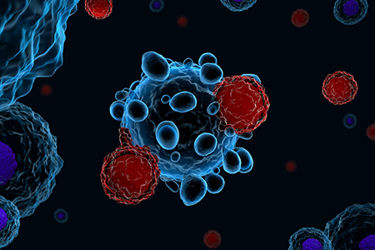Elevate Your T-Cell Manufacturing Process And Achieving Higher Yields At Lower Volumes
By Mindy Miller, PhD, Immunologist and Lead Research Scientist, Terumo Blood and Cell Technologies

The therapeutic potential of T cells, particularly for difficult-to-treat diseases such as cancer, has resulted in a surge of interest among biopharmas in recent years. T cells, along with B cells, are the two primary types of lymphocytes that determine the body’s immune response. Because of their ability to respond to virtually any antigen, their utility in therapeutic applications is vast — in cancer treatment, for example, T cells have been leveraged as both therapeutic tumor-infiltrating lymphocytes (TILs) and CAR T-cell therapies.
As with many other advanced therapeutic modalities, T-cell production is still being optimized, and there are several approaches that exist for the market, each with different yields, costs, and resource requirements. Expanding autologous T cells for clinical and commercial applications can be challenging when done using traditional methods, owing to the high risk associated with contamination, long timelines, and variability between lots.
Today, autologous therapies are produced using suspension cell expansion platforms, and while these technologies have greatly enhanced the ability to manufacture cells, there exists room for innovation.
If you're interested in continuing to explore this topic, click here to watch a webinar with Terumo's laboratory scientist Annie Cunningham. Cunningham walks you through techniques and steps to consider when scaling up your T-Cell production.
Get unlimited access to:
Enter your credentials below to log in. Not yet a member of Cell & Gene? Subscribe today.
